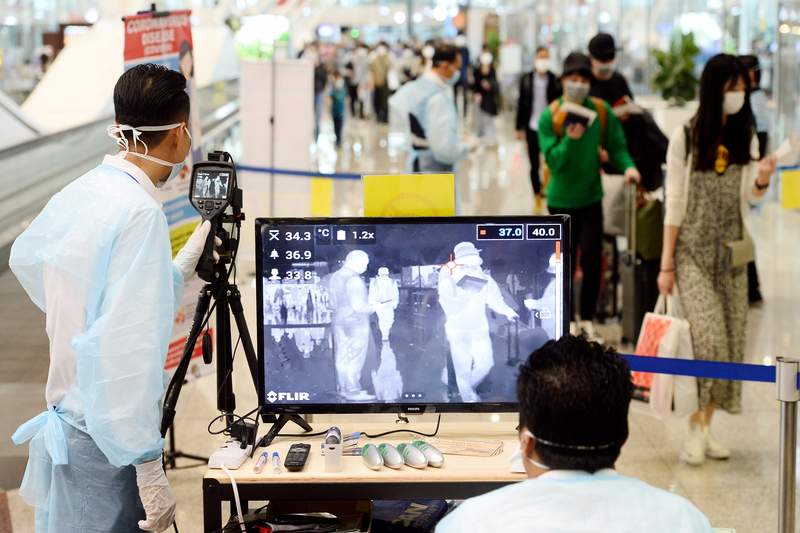July 3 (Reuters) - Here's what you need to know about the
coronavirus right now:
New global record
The United States reported more than 55,000 new COVID-19
cases on Thursday, the largest daily increase any country has
ever reported, according to a Reuters tally.
Coronavirus cases are rising in 37 out of 50 U.S. states
including Florida, which confirmed more than 10,000 new cases on
Thursday. That marked the state's largest daily spike so far and
a level that exceeded single-day tallies from any European
country at the height of the outbreak there.
Making masks mandatory in Texas
In a major policy reversal, Texas Governor Greg Abbott on
Thursday decreed that face masks must be worn in all counties
with over 20 coronavirus cases, billing the measure as a
requirement to avoid another economic shutdown.
For over two months, Abbott ignored calls by the Democratic
leaders of Texas' metropolitan areas to mandate mask wearing.
Wearing face coverings to slow the spread of the coronavirus is
unpopular among Abbott's conservative Republican base in Texas,
but he said in a video released on Thursday that the action was
now absolutely necessary.
"We must do more to slow the spread without locking Texas
back down," Abbott said. "We are now at a point where the virus
is spreading so fast, there is little margin for error."
puts United States on 'red-list'
Britain will end coronavirus quarantines for people arriving
in England from more than 50 countries, including Germany,
France, Spain and Italy - but not the United States.
The move, effective July 10, clears the way for millions of
British tourists to take summer holidays without worrying about
being quarantined when they return. Those arriving from higher
risk countries will still have to self-quarantine for 14 days
under a rule which has angered airlines and travel companies.
The full list of countries has not yet been published. New
Zealand is included, as are the Vatican and Britain's overseas
territories such as the Falkland Islands and Gibraltar. The
United States remains on the "red list". [ Nightlife drives Tokyo's virus spread
Japan will not reintroduce a state of emergency to tackle
the novel coronavirus, a government spokesman said, as cases in
Tokyo rose to a two-month high driven by the spread of the virus
in the capital's night spots.
Tokyo reported 124 new cases on Friday, up from 107 the day
before, partly due to increased testing among nightlife workers
in the Shinjuku and Ikebukuro districts.
Japan's infection rates remain far below many other
countries but the rising number of cases and the possibility of
renewed restrictions have put the authorities and businesses on
edge. of the road' rules again
Thousands of jeepneys, flamboyantly decorated jeeps that
serve as cheap public transport across the Philippines, were
back on the streets of Manila on Friday, bringing relief to
companies and commuters who have struggled with coronavirus
curbs.
An estimated 55,000 of these large, multi-coloured trucks,
dubbed "the kings of the road", crawled through Manila's
gridlocked roads on a typical day before being forced to a halt
15 weeks ago when the government imposed a coronavirus lockdown.
Just 6,000 were back in business on Friday, operating at
half capacity under strict social distancing rules. In
pre-pandemic times, jeepneys routinely carried up to 15
passengers who sat knee-to-knee on twin benches in the
windowless vehicles, choked by exhaust fumes.
